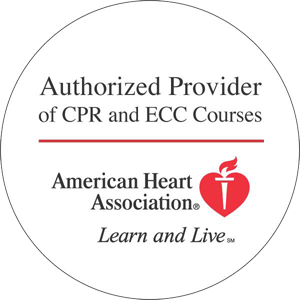While some heart attacks come on suddenly and without warning, some are followed by a set of warning signs. Whether you’re at a high risk age for a heart attack or you work with individuals prone to heart attacks, it’s important to be aware of the signs to better prepare yourself. Some people can experience early warning signs of heart attacks hours, days, or even weeks before it happens. Today, we’re going to discuss the 10 early signs of a heart attack you should never ignore (whether it’s for yourself or those around you).

Who is Most Susceptible to Heart Attacks?
One of the first signs to look out for is age. Men over 45 and women over 50 are more likely to be at risk for heart problems than someone younger, but it’s also not impossible for younger individuals to experience them. Those with a history of heart disease are also more at risk. Other risk factors include:
- Having diabetes
- Being overweight
- Smoking
- Not being physically active
- Eating unhealthy foods
10 Early Signs of a Heart Attack
There are a few early signs to be aware of for yourself and others that may be in the early stages of a heart attack. Here are some of the problems to look out for:
1. Chest Pain
Prior to having a heart attack, one of the most common symptoms is pain or discomfort in your chest. There may be tightness or pressure, and the feeling happens when you’re doing something physical or not doing anything. If the pain continues and doesn’t go away after a few minutes, call 911. With that being said, not everyone experiences pain before a heart attack.
2. Snoring and Lingering Coughs
While these seem like common occurrences, both snoring and an ongoing cough can point toward heart problems.
If you know heart problems run in your family and have a cough that won’t let up, this can be a sign that something more is happening. Especially if you’re coughing up white or pink mucus. When the heart can’t keep up, it causes blood to leak into the lungs.
While snoring is common for a lot of people, if you’re noticing gasping or choking sounds while you sleep or moments where you stop breathing, this puts extra stress on your heart. If this sounds like you or someone you know, a CPAP machine can help with your breathing and alleviate stress on your heart while you sleep.
3. Lightheadedness or Dizziness
While there are normal things that can cause lightheadedness or dizziness, be cognisant when you’re experiencing random symptoms of this. If you feel like you might fall over, have a shortness of breath, and are experiencing pain or discomfort in your chest, this is often the perfect trifecta of a heart attack. If you or someone else is experiencing these symptoms, call 911.
4. Pain or General Discomfort (Specifically, on the Left Side)
Pain on the left side of the body, around the chest, or arm can be a sign of a heart attack. Other pains that you might be experiencing include throat and jaw pain that stem from the center of your chest and spread upward. If you’re experiencing anything abnormal or hear about these symptoms from someone else, it could be a sign that medical intervention is needed.
5. Abnormal Heartbeat
Having an irregular heartbeat during excitable moments is normal, but experiencing random skips in your heart or irregular heart palpitations is not. Especially when they are accompanied by chest pain, dizziness, or shortness of breath. If you or someone else has a combination of these symptoms, making an appointment with a doctor can help save your life.
6. Heartburn, Indigestion, or Nausea
Another symptom of a potential heart attack is experiencing stomach pain, heartburn, indigestion, or nausea. This, paired with a history of heart disease, could make someone more at risk. Women are more likely than men to experience this prior to a heart attack, but both genders are susceptible.
7. Breaking Out in a Cold Sweat
If you or someone else is breaking out in a cold sweat for no reason, this could also be a sign of heart problems. Combined with other symptoms, this could be a precursor to bigger heart problems that you’re unaware of. If you break out in a cold sweat along with other symptoms on this list, call 911 immediately to get checked out.
8. Feeling Weak or Exhausted
If normal tasks are suddenly feeling like too much, this is a huge sign of heart problems. Whether you’re climbing stairs, grabbing the mail, or carrying groceries, if you’re experiencing weird bouts of exhaustion, this could be a sign that your heart is at risk. Days of extreme exhaustion without having an explanation for it can often be the first precursor to an oncoming heart attack.
9. Swollen Bottom Half of Your Body
If you or someone else’s bottom half of their body (legs, feet, ankles) appears to be swollen, it could indicate that the heart is not pumping fast enough. When your heart is having issues pumping blood effectively, swollen limbs are a huge sign of these changes. If you or someone else is experiencing heart failure, the kidneys struggle to remove extra water and sodium, and this can also lead to bloating. So, if you or someone you’re around appears to have excessive bloating or any of these other symptoms, call 911 to get checked out.
10. High Risk of Heart Disease and Short of Breath
If you or someone else is at high risk of heart disease and has random experiences of shortness of breath, this can be a sign that a heart attack is oncoming. Or, at the very least, that you have a heart condition that needs attention. Randomly experiencing shortness of breath and feeling weak during normal activities alludes to the fact that something more could be going on with your heart. If you’re feeling short of breath, have a history of heart problems, and have any other risk factors, speak with your doctor ASAP.
How to Respond to a Heart Attack
Whether you or someone you know is experiencing these symptoms, you want to be prepared so you know how to respond to a heart attack appropriately. Here at HeartCert, we offer certified CPR training so you can learn to save someone’s life. Whether your job requires it or you simply want knowledge on the subject, our instructors will give you the tools so you know how to respond in an emergency situation. Ready to sign up and gain knowledge to save a life?
Save a heart with CPR.
HeartCert is your trusted training partner for CPR, ACLS, PALS, EMR, First Aid, CNA, IV, EKG and more, throughout the United States.
Courses include CPR/AED/First Aid, Basic Life Support (BLS), Advanced Cardiac Life Support (ACLS), Pediatric Advanced Life Support (PALS), Certified Nursing Assistant training, IV training, EKG training, babysitter basics and more. Courses and certifications from both the American Heart Association and American Red Cross are available. We offer virtual courses and certifications, in all 50 states as well as in-person classes at our headquarters, HeartCert CPR Eagan and major cities in Iowa, Illinois, Georgia, Michigan, Minnesota, Mississippi, Nebraska, Pennsylvania, Texas and Wisconsin.








